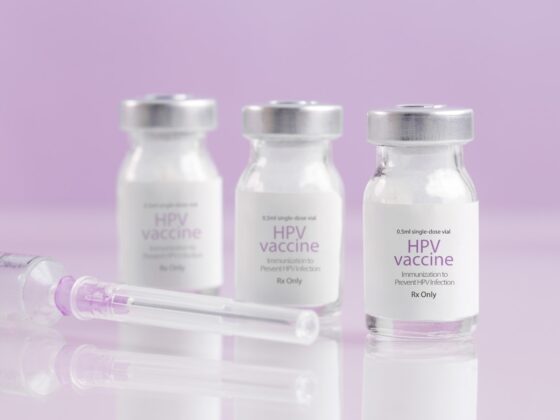March saw the publication of several important studies in oncology, shedding new light on cancer treatment and care. Here’s a roundup of the key studies on recent discoveries and breakthroughs that grabbed our attention this month.
Small device, big impact: Improving the safety of life-saving treatments for children with leukemia
In a groundbreaking study published in Nature Communications, researchers at the University of Houston, in collaboration with Baylor College of Medicine, have developed a microfluidic device that could revolutionize the treatment of children with leukemia. This new device addresses the significant challenges posed by conventional leukapheresis machines, which can be risky for young patients due to their smaller blood volumes and high flow rates. The device efficiently separates dangerous white blood cells, or leukocytes, from the blood without causing platelet loss or other complications, a crucial step in treating hyperleukocytosis—a condition that occurs when leukemia leads to dangerously high white blood cell counts.
The innovative microfluidic device uses tiny channels to filter blood by size, removing over 85% of large leukocytes and 90% of leukemic blasts without clogging or damaging cells. In tests, it demonstrated high efficiency while operating at much lower blood volumes compared to traditional methods, making it safe for even the smallest patients. This breakthrough marks the first successful attempt to address long-standing issues in microfluidic cell separation, offering a potential life-saving solution for pediatric leukemia patients who have been difficult to treat with conventional techniques.
Dendritic cell vaccine shows potential to enhance chemotherapy effectiveness in HER2-postitive, ER-negative subtype
A promising new vaccine strategy developed by researchers at Moffitt Cancer Center could enhance the treatment of HER2-positive, estrogen receptor-negative (HER2-positive, ER-negative) breast cancer. The study, published in npj Breast Cancer, combined dendritic cell vaccines targeting the HER2 protein with standard chemotherapy and found it to be both safe and effective. In a pilot study of 30 patients with stage 2 and stage 3 breast cancer, the vaccine significantly boosted immune responses, with some patients experiencing complete tumor disappearance. This innovative approach, which involves administering the vaccine before chemotherapy, may represent a breakthrough in improving chemotherapy effectiveness.
The study also revealed that injecting the vaccine directly into the tumor led to heightened immune activity within the tumor, suggesting that this could pave the way for more effective immunotherapies for HER2-positive breast cancer. Researchers believe that stimulating the immune system in this way could lead to longer-lasting responses and improved patient outcomes. Supported by the National Institutes of Health and the Department of Defense Breast Cancer Research Program, the findings highlight the transformative potential of immunotherapy in breast cancer treatment.
A lymph node transfer involves removing lymph nodes from the groin area and transferring them into the armpit
A recent multicenter study from Finland has demonstrated that lymph node transfer is an effective surgical treatment for lymphedema, a condition that causes severe swelling in the arm after breast cancer surgery. Lymphedema, which affects 20-40% of women post-surgery, results from the removal of axillary lymph nodes during cancer treatment. The procedure involves transferring lymph nodes from the groin to the armpit, replacing those removed during surgery, and is often combined with breast reconstruction. The study found that the lymph node transfer significantly improved patients’ quality of life and reduced arm swelling, confirming the procedure’s viability as a treatment option.
However, the study also explored whether the drug Lymfactin, a growth factor that promotes lymphatic repair, could further enhance the success of the transfer. Despite promising results in animal models, the drug did not provide sufficient additional benefits in human patients. The research, which included 39 women across Finland and Sweden, showed that while Lymfactin did not outperform a placebo, lymph node transfer alone still resulted in substantial improvements in arm volume and skin fluid reduction. Researchers, including lead author Pauliina Hartiala, now hypothesize that lymphedema may involve immunological factors, suggesting new avenues for future treatments targeting immune system regulation.
Beneficial genetic changes in regular blood donors
A recent study from the Francis Crick Institute has revealed that frequent blood donors exhibit beneficial genetic changes in their blood stem cells, which may help prevent blood cancers like leukemia. The study, published in Blood, examined over 200 blood donors, focusing on those who donated blood regularly over several decades. Researchers found that these donors had mutations in the DNMT3A gene, known to be linked to leukemia, but unlike typical leukemia-associated mutations, the changes observed in regular donors were not in areas prone to preleukemic development. These genetic changes seem to allow the stem cells to better respond to the stress of blood donation, promoting healthy blood production.
Through laboratory experiments, the team demonstrated that stem cells with these specific mutations thrived under conditions mimicking blood loss, such as those experienced during donation, but did not show the cancerous tendencies seen in preleukemic mutations. The study also showed that these cells responded well to erythropoietin (EPO), a hormone triggered by blood loss. Although the study does not definitively prove that blood donation reduces blood cancer risk, the findings suggest that the process may encourage mutations that enhance stem cell growth and resilience, potentially providing new insights into leukemia prevention and treatment.
Diabetes drug could help cancer patients make better recovery European Journal of Preventive Cardiology
A commonly prescribed diabetes medication, SGLT2 inhibitors, has shown promising potential in improving long-term recovery for cancer patients, particularly in reducing heart failure risks associated with chemotherapy. A recent meta-analysis involving over 88,000 cancer patients and survivors revealed that SGLT2 inhibitors significantly lowered the incidence of heart failure and related hospitalizations by more than 50%. This is the first time a medication has demonstrated such benefits in cancer patients, especially those undergoing anthracycline chemotherapy, which is known to affect heart health.
The study, led by the University of East Anglia, highlights the medication’s potential in protecting the heart during and after cancer treatments. The effects were most notable in breast cancer patients, where the occurrence of new heart failure cases dropped by over 70%. While the findings are promising, the research team stresses the need for further studies to confirm these results and potentially make SGLT2 inhibitors a routine part of cancer care. This breakthrough could offer a significant improvement in the quality of life for cancer survivors and those undergoing chemotherapy.
Scientists discover how aspirin could prevent some cancers from spreading
A new study from the University of Cambridge has uncovered how aspirin could potentially prevent the spread of certain cancers by stimulating the immune system. Published in Nature, the research reveals that aspirin works by decreasing the production of thromboxane A2 (TXA2), a clotting factor, which in turn releases T cells from suppression, allowing them to better target and attack metastatic cancer cells. This breakthrough could lead to the development of therapies that prevent cancer metastasis, especially during the critical early stages when cancer cells are most vulnerable to immune attack.
The study, which was serendipitously discovered, also highlights the role of the ARHGEF1 protein, which suppresses T cell activity. In mice, aspirin was shown to reduce metastases in melanoma by enhancing the immune response. While aspirin’s potential to prevent metastasis is exciting, scientists caution that the drug can cause serious side effects in some individuals, and clinical trials are ongoing to determine safe and effective use. Researchers hope that this discovery will lead to accessible, cost-effective treatments to prevent cancer recurrence in at-risk patients.
Do congenital heart defects affect cancer risk in newborns and their mothers?
Newborns with congenital heart defects may face a significantly higher risk of developing childhood cancer compared to those without such defects, according to a study published in Circulation. The research, which analyzed data from over 3.5 million births in Korea, found that cancer risk was 66% higher in infants with congenital heart defects. The risk was notably elevated in cases involving blood vessels or heart valves, and the most common cancers observed were leukemia and non-Hodgkin lymphoma. Additionally, mothers of newborns with congenital heart defects had a 17% higher likelihood of being diagnosed with cancer during the 10-year follow-up period.
The study also highlights the potential link between congenital heart defects and increased cancer risk in mothers, possibly due to shared genetic factors or mutations that predispose both conditions. Although the exact mechanisms remain unclear, this finding underscores the need for further research to explore how genetic and environmental factors might contribute to both congenital heart defects and cancer risk. Researchers suggest that multidisciplinary care, including ongoing monitoring and genetic analysis, could help manage the long-term health risks for families affected by congenital heart defects.
Low uptake of supportive care at end of life
A recent study published in JAMA Health Forum reveals that nearly 50% of patients with advanced cancer receive aggressive treatments instead of supportive care during the final stages of life, despite recommendations for early integration of palliative and hospice care. The study, which analyzed data from over 33,000 Medicare beneficiaries with advanced cancers, found that only about 25% of patients received palliative care in the last six months of life, with most of that care provided in the final month. Additionally, nearly 45% of patients experienced aggressive interventions, such as multiple acute care visits or late-stage systemic therapies.
The study underscores the need for improved access to supportive care and better communication between healthcare providers and patients regarding end-of-life planning. Researchers highlight that proactive discussions about advanced care options and the removal of barriers to palliative care could significantly enhance the quality of life for patients in their final months. Despite considerable efforts to improve end-of-life care, the findings suggest that many patients continue to undergo treatments that may not align with their wishes or improve their quality of life in the end.












